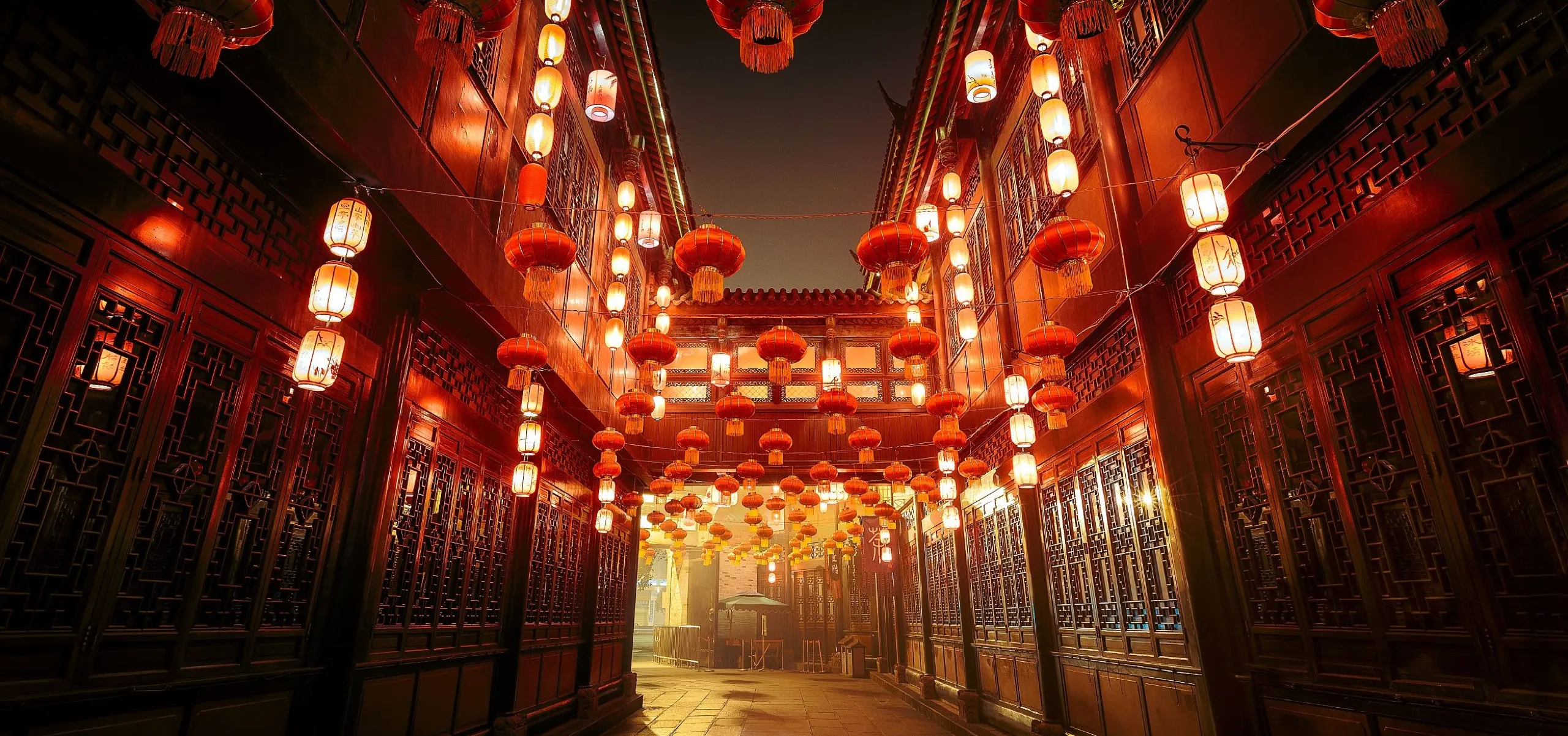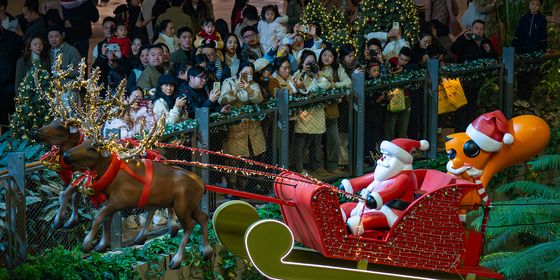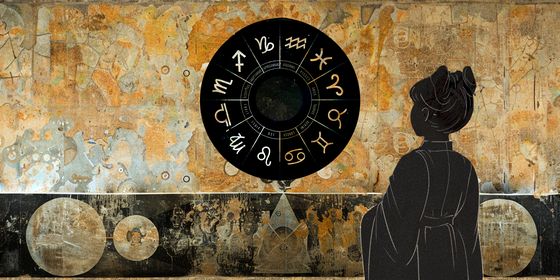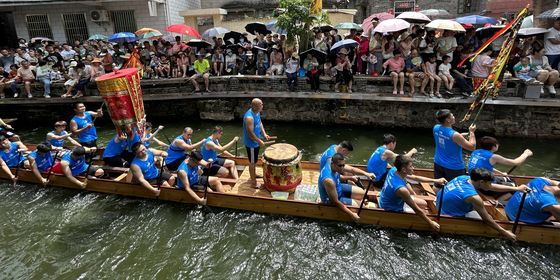How seven ancient poets wrote about celebrating the Lunar New Year
The precise date of the Chinese New Year, or Lunar New Year, has varied according to different calendars adopted by different dynasties, but the holiday spirit has remained for thousands of years. The festival naturally became a common subject for ancient poets, who captured cheerful moments, pondered over the fleeting nature of time, or sometimes disregarded tradition to celebrate in solitude.
Holiday celebrations typically start on New Year’s Eve or 除夕 (chúxī), when people stay awake all night long to welcome in the New Year, a tradition called 守岁 (shǒusuì). Here’s a poem by Lu You (陆游), a poet from Southern Song dynasty (1127 – 1279), on a timely holiday snowfall:
“Snow on New Year’s Eve”
In early morning, a north wind brings snow;
It’s a blessing from Heaven arriving in time.
I haven’t yet raised my half cup of Tusu wine to toast the New Year;
Busy writing peach wood charms by lamplight.
Lu was a scholar and official who devoted his life to a failed mission to convince the corrupted Southern Song court to take back the northern lands they had lost to the Jurchens. Here, he was in a festive mood: sipping the traditional Lunar New Year drink, Tusu wine (屠苏酒), made by infusing wine with herbs and believed to be able to dispel plague, while preparing spring couplets for decoration. The peach wood charms (桃符 táofú) mentioned in the poem are a pair of wood carvings of gods or auspicious words people hang on their door during the New Year to ward off evil in ancient times. These later evolved into writings on red paper, or 春联 (chūnlián), commonly seen on Chinese household doors around the Lunar New Year today. Judging by the context, the paper version had already been adopted when Lu wrote “Snow on New Year’s Eve.”
In another poem, Qing dynasty (1616 – 1911) playwright and poet Kong Shangren (孔尚任) wrote about celebrating the Lunar New Year with his family when he was in his 60s:
“Lunar New Year of Jiawu (1714)”
Despite thinning white hair,
I stayed up for a night to feast on New Year’s Eve.
The burning candle urges me to drink up;
I emptied my pocket, giving children coins for good luck.
Hearing the noise of firecrackers, I’m cheerful like a child;
Seeing new spring couplets hang, I sense closure of the old year.
Listening to the “Plum Blossom” tune one more time;
Soon, the day breaks and people greet one another with laughter.
Kong’s poem depicted Lunar New Year customs typical during his time, when people enjoyed 围炉 (wéilú)—a night feast around a stove, much like a hot pot banquet. Today, weilu is still a New Year tradition in Fujian province and other parts of southern China. Coins given to children by the adults in the family are called 买春钱 (mǎichūnqián), literally “money to buy spring,” which was a similar tradition to today’s 压岁钱 (yāsuìqián), red envelops of money given to children by seniors during the New Year.
In another poem by Southern Song poet Fan Chengda (范成大), we get to learn some humorous, though now obsolete, Lunar New Year Traditions:
“Poem on Selling Silliness”
On New Year’s Eve, no one is asleep at midnight,
They pray to gods for blessings, and wait for the New Year to arrive.
A group of children hawk along the street, saying they have “silliness” for sale.
But who doesn’t have silliness? There’s enough in the city and more to spare.
From south to north in the alley, they laugh and banter, but couldn’t make a sale.
An old man sitting behind curtains asks: How much for your silliness?
The children answer: grandpa doesn’t need to pay money, you can be in our debts for hundreds and thousands of years.
In this poem, Fan depicted the humorous tradition of 卖痴呆 (mài chīdāi), or “selling silliness,” among children in the Wu region, which covers much of today’s Jiangsu and northern Zhejiang provinces. With the wish to grow smarter in the New Year, kids would peddle their “silliness” on streets, hoping others would take it off their hands. A senior would often jokingly ask for the price, while the kids would offer to put it on a tab that will last for a long time, which is also a wish for the senior’s longevity.
Of course, not all poets are into traditional rituals. Ming dynasty (1368 – 1644) scholar Wen Zhengming (文徵明), famous for being accomplished in calligraphy, painting, poetry, and prose, was totally immersed in his own world even during the New Year:
“New Year’s Eve”
Others are busy celebrating the New Year, but I’m sorting old poems under the lamp.
Don’t laugh at me for being pedantic; my most important achievements of the year are poems and prose.
The New Year can also be a vivid reminder of the fleeting nature of our lives. In this poem, Su Shi (苏轼), a literary giant of the Northern Song dynasty (960 – 1127) also known by his nickname Su Dongpo (苏东坡), ponders over the time gone by, and vows to cherish every moment:
“Stay Up Late on New Year’s Eve”
The old year is parting,
Like a snake slithering into a deep ravine.
Scales barely seen; none could stop its course.
Try as hard as we might to grab its tail, but in vain.
Children strive to stay awake, laugh and play all night long.
Rooster, please don’t crow yet, but the morning drum is urging.
The lamp has burnt out, and the Big Dipper decends on the horizon.
Year after year, time flies and my worries are futile.
Better to cherish this night, and I still have the spirit of a young man.
While Su gave us a sense of urgency, Yu Qian (于谦), a famous Ming dynasty court official, gave us a sense of hope that is akin to British poet Percy Bysshe Shelley’s “Ode to the West Wind.”
“An Extremely Cold Night in Taiyuan on New Year’s Eve”
Please tell the friends living afar, the weather is chilly but no need to worry.
The spring wind is arriving and quite close to us, touching the eastern end of our house.
Last but not least, this one is perhaps the most wide-spread Lunar New Year poem by Northern Song politician and scholar, Wang Anshi (王安石). Appearing in third-grade Chinese language textbooks, its beautiful meter and cheerful depiction of Lunar New Year’s Day had a huge influence on the national imagination of the festival today.
“New Year Day”
With the noise of firecrackers, the old year has passed away;
The spring breeze has infused warmth in the Tusu wine.
When the rising sun shines on the doors of each household,
New peach wood charms are put up to replace the old.












